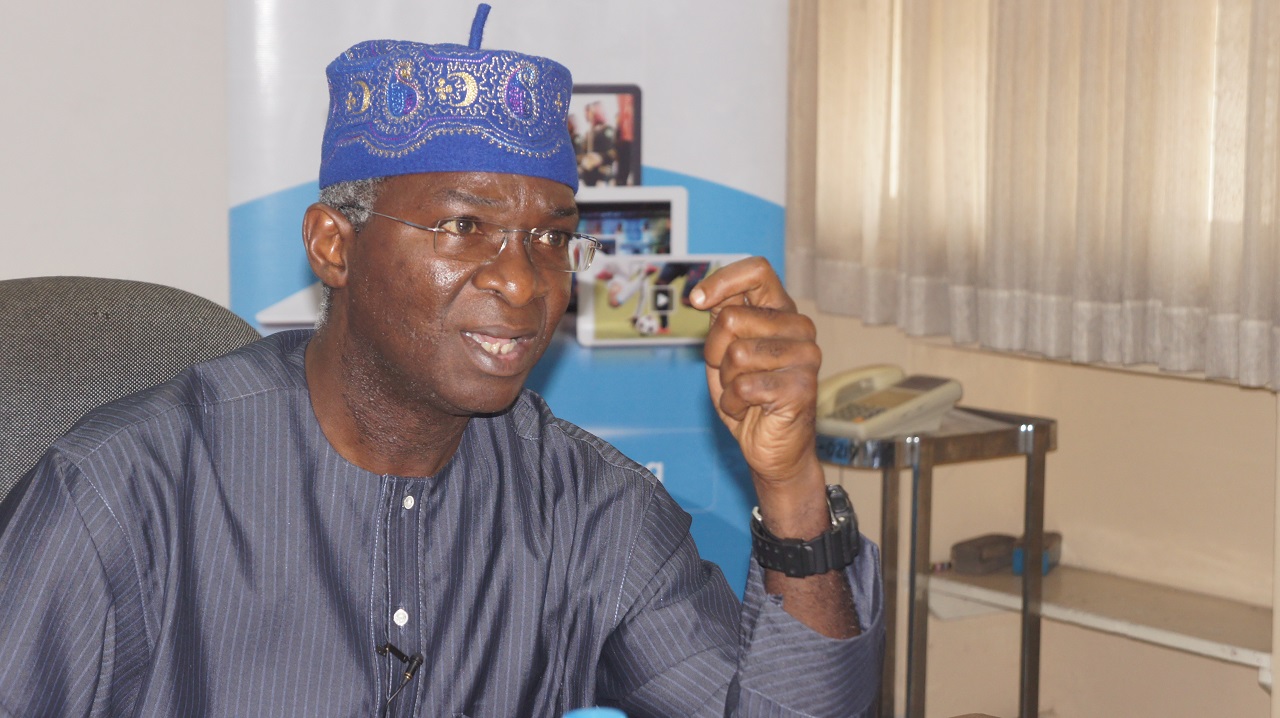The Director General/CEO, National Information Technology Development Agency (NITDA), Kashifu Inuwa Abdullahi, has given insights on the activities on his agency as COVID-19 global pandemic hits several economies including that of Nigeria.
In a recent interview, he revealed that “NITDA has launched several initiatives in order to ensure that technology continues to enable business continuity. You may have followed some of our initiatives like:
- Tech4COVID19 Initiative – This initiative is set to measure the impact of COVID-19 on the tech ecosystem and proffer solutions especially for startups. The Committee we set-up has come up with a Strategic Plan to ensure we retain about 100,000 ICT Jobs and create an additional 30,000 in the Post COVID-19 Era.
- Virtual Startup Clinic –Startups where gathered, mostly young people to meet with mentors, successful entrepreneurs, investors, industry specialists, business consultants and hub operators with the goal of solving problems and challenges they were facing. We held two virtual startup clinics within a time frame of 1 month.
iii. Nigeria COVID-19 Innovation Challenge – An online innovation challenge was held to meet the challenges our society is facing as a result of the COVID-19 pandemic. 5 startups with highly innovative ideas were selected for the final challenge and 3 of them were selected for further incubation. A support of ₦1 000,000₦750,000 and ₦500,000 were won by the 1st, 2nd and 3rd winners respectively.
- NITDA Technology Innovation & Entrepreneurship Support Scheme – This is a scheme to support startups and hubs across the country. With over 120 hubs in Nigeria, we are finalizing plans to ensure rapid intervention is provided for hubs and startups based on competence and carefully selected criteria.
- We are continuing with our SMART Agric Project, where we engage farmers and focus on using precision/smart farming to ensure significant improvement in crop yield, quality of farm produce, efficiency and productivity; increased profit margin, harvest forecast, sales of farm produce and eco-friendly agriculture practice. During this pandemic, we have engaged 130 farmers on this Project.
- Furthermore, we setup and launched the NITDA Academy – a platform for virtual learning where thousands of young Nigerians can have access to a wide range of educational courses and tools online.
However, he was quick to note that the COVID-19 Pandemic has had devastating effects on countries globally. While looking at the management of the pandemic as challenging, it has been a turning point for revolutionizing of Digital Technologies to deliver products and services across the world, which is what we refer to as the new normal. Therefore, we did not miss the opportunity to prepare for the impact of the pandemic and also provide adequate support to insulate the Technology and Innovation Ecosystem.
Speaking on his one year in office this August 2020, NITDA DG averred that “I must say, it was an amazing journey. This isn’t something that I expected or even envisaged. It was indeed a pleasant surprise. It however, shows the confidence my boss and mentor,Dr Isa Ali Ibrahim (Pantami), FNCS, FBCS, FIIM, has in my ability to the extent of recommending me to President Muhammadu Buhari, GCFR, to take a giant leap step into his shoes. It is a great honour, and I am putting in my best not to disappoint the expectation of my boss and mentor, Mr President, Nigerian Youths as well as the country as a whole.
On his assessment of activities, he noted that “As you may be aware, I am not new in the Nigeria’s IT industry. I am at home being at the helm of affairs in NITDA. As a person that is open to new approaches and strategies, with the experiences I have gained for the last 15 years in the IT sector spanning between the private and the public sector and through unceasing study, my team and I have worked diligently to ensure the continuous development of the IT sector in Nigeria over the past 10 months. Remember, I picked itup from a good place to consolidate upon, considering the foundation laid by my boss and mentor, Dr Isa Ali Ibrahim (Pantami), FNCS, FBCS, FIIM.
Giving details on the key mandates of the Federal Agency he wishes to focus on, Inuwa Abdullahi recalled that “NITDA is implementing a strategic roadmap for the development of Nigeria’s IT sector. It consists of 7 pillars that are in alignment with the 8 pillars of the National Digital Economy Policy & Strategy. The 7 key pillars of our Roadmap are IT Regulation, Capacity Building, Digital Inclusion, Digital Job Creation, Government Digital Service Promotion, Local Content Development, and Cybersecurity. We have rolled out several policies, regulations, and programmes, focusing on those areas. However, as the roadmap is set to expire this year as is the Nigeria Economic Recovery and Growth Plan (ERGP) which it draws from. NITDA has already commenced reviewing it as well as developing the next plan, which will soon be launched. It is in alignment with and takes cognizance of the National Digital Economy Policy and Strategy (NDEPS), the Nigeria Economic Sustainability Plan (NESP) and other important plans and policies of this administration.
On handling of industry disputes especially those relating to OEMS, Inuwa Abdullahi revealed that NITDA has demonstrated great support and has ensured improved patronage of indigenous OEMs in the last 3 years. It is a fact that the purchase of local devices by MDAs is unprecedented within these years compared to previous years before 2018. For instance, in 2015-2016 less than 250,000 devices were sold by indigenous OEMs. However, due to the intervention of NITDA, records shows that in 2018/2019 alone OEMs sold three times the numbers sold prior to 2017 with about 778,886 of locally assembled devices sold in 2018 and 2019.
However, he admitted that “there are some challenges with the implementation of the Presidential Executive Order 003 for promotion of local content in the procurement of MDAs and the NITDA issued Guidelines for Nigerian Content Development in ICT, which mandates MDAs also to purchase Nigerian hardware products. NITDA is implementing the Executive Order and Guidelines vigorously through active surveillance and IT Projects assessment and clearance process of the Agency.Nevertheless, procurement law requires OEMs to either bid directly or work with other contractors to bid to ensure transparency and value for money. If MDAs violate the process NITDA can then be notified for action.
There is also a challenge with the quality of some of the indigenous brands. In an effort to address this challenge, in 2018, we mandated these OEMs to go through a rigorous certification process requiring them to have ISO 9001:2015 for quality management systems. This, we believe, will ensure they are able to provide products that meet quality and regulatory requirements always. Currently, only 3 out of 10 previously registered OEMs have been fully certified.
On the planned review of Nigeria’s IT Policy, NITDA DG said “It may interest you to know that our supervising Ministry, Federal Ministry of Communications and Digital Economy handles policy-related issues. You may be aware that there were several attempts at reviewing the policy in 2012, 2013 and 2017.
“Currently, with my boss and mentor, Dr Isa Ali Ibrahim (Pantami) as the Honourable Minister, the efforts have resulted the development of the National Digital Economy Policy and Strategy (NDEPS), unveiled by President Muhammadu Buhari, GCFR, during the 2019 e-Nigeria International Conference, Exhibition and Awards, held on the November28th, 2019. The NDEPS effectively replaces the National IT Policy.
When asked on what footprints would you like to be remembered for in the Nigeria IT space, Inuwa Abdullahi recalled with passion that “Nigeria is where I call home and my vision for NITDA and the IT space is to leave behind a legacy; to leave an unprecedented record of achievements that will continue to support the growth and development of the ICT Sector, thereby contributing meaningfully to the lives of Nigerians”.








